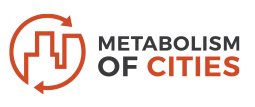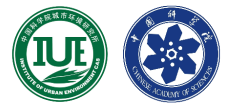
Urban metabolism in policy and practice
A global discussion
Programme - Beijing
This event took place at Tsinghua University, Beijing, China on Saturday, July 6, 2019. A total of 42 participants attended from a wide variety of backgrounds and institutions. This event focused on the challenges of solid waste and how an urban metabolism lens can help address these challenges in the city of Beijing.
Update: the presentations are now available (see links below in the program).
In August 2019 we aim to have the edited videos available.
| Times | Activities |
|---|---|
| 08.00 – 08.30 | Arrival & Registration |
| 08.30 – 09.15 |
Introductory block Welcome Introduction to urban metabolism Speakers: Paul Hoekman Co-founder and Programming Task Force Leader, Metabolism of Cities Dr. Lixiao Zhang Associate Professor, School of Environment, Beijing Normal University Download presentation |
| 09.15 – 10.30 |
Waste management and urban metabolism: international cases In this block we will explore international case studies of how urban metabolism is used to better manage or understand waste flows, with cases from Brazil and Japan. Speakers: Maryegli Fuss Scientific staff, Karlsruhe Institute of Technology (KIT) Download presentation Dr. Qian Zhang Postdoctoral fellow, Department of Civil Engineering, University of Victoria Download presentation |
| 10.30 – 10.45 | Break |
| 10.45 – 12.15 |
Waste practices and challenges in Beijing In this block we look at the existing practices around solid waste in Beijing, and we explore the challenges that the city is currently facing. We will also discuss relevant practices and the latest developments in Chinese cities. Speakers: Dr. Jinhui Li Professor, School of Environment, Tsinghua University Dr. Xin Tong Associate Professor, Department of Urban and Economic Geography, Peking University Download presentation |
| 12.15 – 13.15 | Lunch |
| 13.15 – 14.30 |
Policy interventions and guidelines In this block we hear about policy interventions that have been applied in US, Indian and Thai cities, and the challenges that exist when trying to apply industrial ecology thinking to policy interventions. Speakers: Dr. Ning Ai Assistant Professor, Department of Urban Planning and Policy, University of Illinois at Chicago Download presentation Curt Garrigan Chief of the Sustainable Urban Development Section, UN Economic and Social Commission for Asia and the Pacific Download presentation |
| 14.30 – 15.45 |
The role of data In this block the challenges and opportunities of data, and what role data can play in this work is being reviewed. An open source data platform will be presented and the work of the Beijing City Lab will be discussed. Speakers: Paul Hoekman Co-founder and Programming Task Force Leader, Metabolism of Cities Download presentation (License: Creative Commons License CC BY 4.0) Dr. Yupeng Liu Institute of Urban Environment, Chinese Academy of Sciences Download presentation Dr. Dong Li Deputy Director, Innovation Center for Technology, Beijing Tsinghua Tongheng Urban Planning & Desi Institute Download presentation |
| 15.45 – 16.00 | Break |
| 16.00 – 17.00 | World Café Moderator: Gabriela Fernandez Co-founder and Innovation Task Force Leader, Metabolism of Cities |
| 17.00 – 17.30 | Closing |
| 17.30 – 19.30 | Dinner (optional) |
Venue
This event will be held at Room 119 at the School of Environment, in the Sino-Italian Environment & Energy Building, Tsinghua University, Beijing, China.
If you are taking a taxi to the venue and do not speak Chinese, you can use these translations to indicate your destination:
- Tsinghua University, School of Environment (Sino-Italian Environment & Energy Building):
清华大学环境学院 中意节能楼 - Address to be dropped off:
环境学院东1门
Organisers
Metabolism of Cities

Metabolism of Cities is a global network of collaborators working to systematically improve the sustainability of cities, by creating and sharing urban metabolism knowledge and accelerating its implementation in policy and practice.
Sustainable Urban Systems Section - International Society for Industrial Ecology

The Sustainable Urban Systems Section (SUS Section) of the ISIE aims to engage practitioners and researchers by providing a platform for multidisciplinary systems approaches to understand, plan, build, and manage sustainable, healthy, and resilient cities.
Institute of Urban Environment, Chinese Academy of Sciences

The Institute of Urban Environment (IUE), Chinese Academy of Sciences (CAS) was established on July 4, 2006. IUE is a comprehensive and multi-disciplinary institution engaged in fundamental and applied research on the cutting edge of environmental and resource sciences, as well as the development of high-tech for environmental remediation and waste management, encompassing the impacts of urbanization on ecosystems and social economy, the structures, processes, functions and patterns of urban ecosystems, the relationship between urban environmental quality and ecosystem/human health, and innovative integration of technologies and instruments for the control and remediation of water, soil, air, and solid waste pollution.
Website (Chinese version) Website (English version)
If you have any questions, please contact us at seminarseries@metabolismofcities.org
